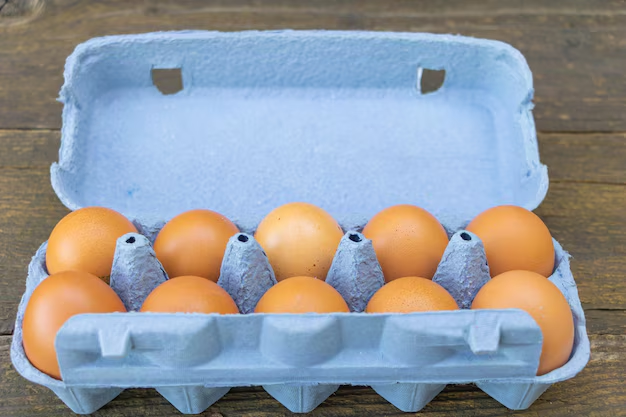How Long Can You Store Unwashed Eggs in the Refrigerator?
Have you ever wondered how long those farm-fresh, unwashed eggs will last in your refrigerator? If you're someone who prioritizes quality and freshness, understanding the shelf life and proper storage methods for eggs is essential. Let's crack open this topic to provide a comprehensive guide on extending the shelf life of unwashed eggs while ensuring food safety.
🥚 Understanding the Natural Coating
Unwashed eggs come with a natural coating on their shell known as the bloom or cuticle. This invisible layer serves as a protective barrier, keeping out bacteria and reducing moisture loss. By preserving this coating, the eggs remain fresher for longer periods compared to washed or commercially processed eggs.
Benefits of the Bloom
- Protection Against Bacteria: The bloom helps safeguard the egg's interior from unwanted bacteria, reducing the risk of contamination.
- Moisture Retention: Maintaining the natural coating assists in preserving the egg’s moisture content, keeping them fresher for extended periods.
Given these advantages, unwashed eggs have a distinct edge when stored properly.
🧊 Refrigeration and Shelf Life
When stored in the refrigerator, unwashed eggs can remain fresh for quite some time. However, several factors can influence their shelf life:
Key Factors Affecting Freshness
Temperature: Keeping your refrigerator at a consistent temperature (ideally below 40°F or 4°C) is crucial for maintaining egg freshness.
Humidity Levels: The moisture content in your fridge should be optimally balanced to prevent the eggs from drying out or becoming too damp.
Storage Location: To minimize temperature fluctuations, store eggs on a middle shelf instead of the refrigerator door.
General Shelf Life Expectation
With optimal storage conditions, unwashed eggs can last up to 4-6 weeks in the refrigerator. While this estimate provides a guideline, always use your senses to judge freshness.
🕵️♀️ How to Assess Egg Freshness
Determining whether an egg is still good can be carried out using simple techniques:
The Float Test
Fill a Bowl with Water: Place the egg gently in the water.
Observation:
- Fresh Egg: Sinks to the bottom and lays flat on its side.
- Slightly Older Egg: Stands upright but remains submerged.
- Bad Egg: Floats to the surface, indicating a higher likelihood of spoilage.
Sniff and Inspect
- Cracking the Egg: If any foul odor is present upon cracking the egg, it should not be consumed.
- Visual Check: Look for any discoloration or unusual spotting that might indicate spoilage.
🏠 Home Storage Practices
For those with backyard chickens or access to fresh eggs from local markets, proper storage is key to extending shelf life:
Tips for Storing Unwashed Eggs
Keep in Cartons: Storing eggs in their original carton prevents odors from seeping in and maintains orientation, minimizing air exposure.
Handling with Care: Handle eggs gently to avoid compromising the protective bloom.
Storing Pointy Side Down: This helps keep the yolk centered and reduces the risk of contamination reaching the yolk.
Seasonal Considerations
In warmer months, refrigeration is even more critical. During cooler seasons, if you have a consistent, cool storage area, eggs might stay fresh without refrigeration but may not last as long.
🐓 From Farm to Fridge: What About Commercial Eggs?
Commercially processed eggs undergo washing and sanitization, removing the natural bloom but potentially introducing bacteria. These eggs are more reliant on refrigeration and should be consumed within 3-5 weeks of purchase.
Comparing Unwashed and Commercial Eggs
- Unwashed Eggs: Naturally longer shelf life due to the presence of the bloom.
- Washed Eggs: Require refrigeration immediately and may have a shorter shelf life.
📝 Summary Insights
To encapsulate the core elements of this guide, here’s a quick reference list:
How to Maximize Freshness for Unwashed Eggs:
- 🥶 Store in the Refrigerator: Ideal temperature is below 40°F (4°C).
- 🧊 Avoid Temperature Fluctuations: Use middle shelves rather than the door.
- 🔍 Conduct the Float Test: To check for freshness before use.
- ♻️ Maintain Natural Coating: Handle gently to protect the bloom.
Quick Cheat Sheet 🗒️
- Freshness Duration: Up to 4-6 weeks when refrigerated.
- Test for Freshness: Use water tests and sensory checks.
- Store Smartly: Pointy side down in its carton.
🌟 Closing Thoughts
Understanding how long unwashed eggs remain good and how to store them properly allows you to enjoy delicious, fresh eggs while minimizing waste. By following these simple tips and tricks, you can make the most of your eggs, whether they're from a local farm stand or your own backyard chickens. Enjoy cracking into the most vibrant yolks and savor the difference that fresh, well-stored eggs bring to your meals!

